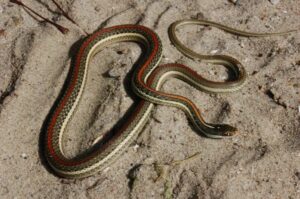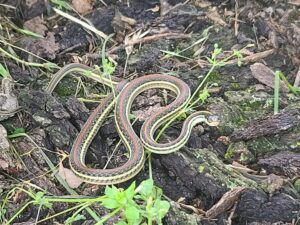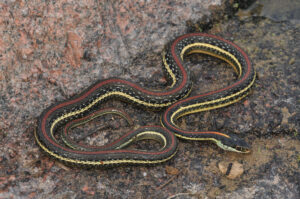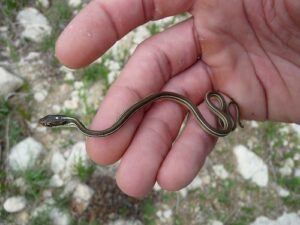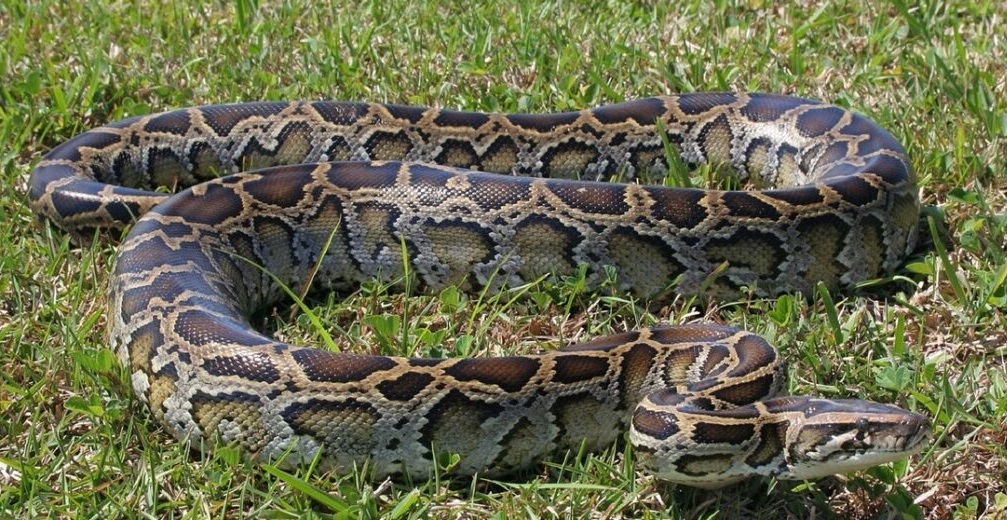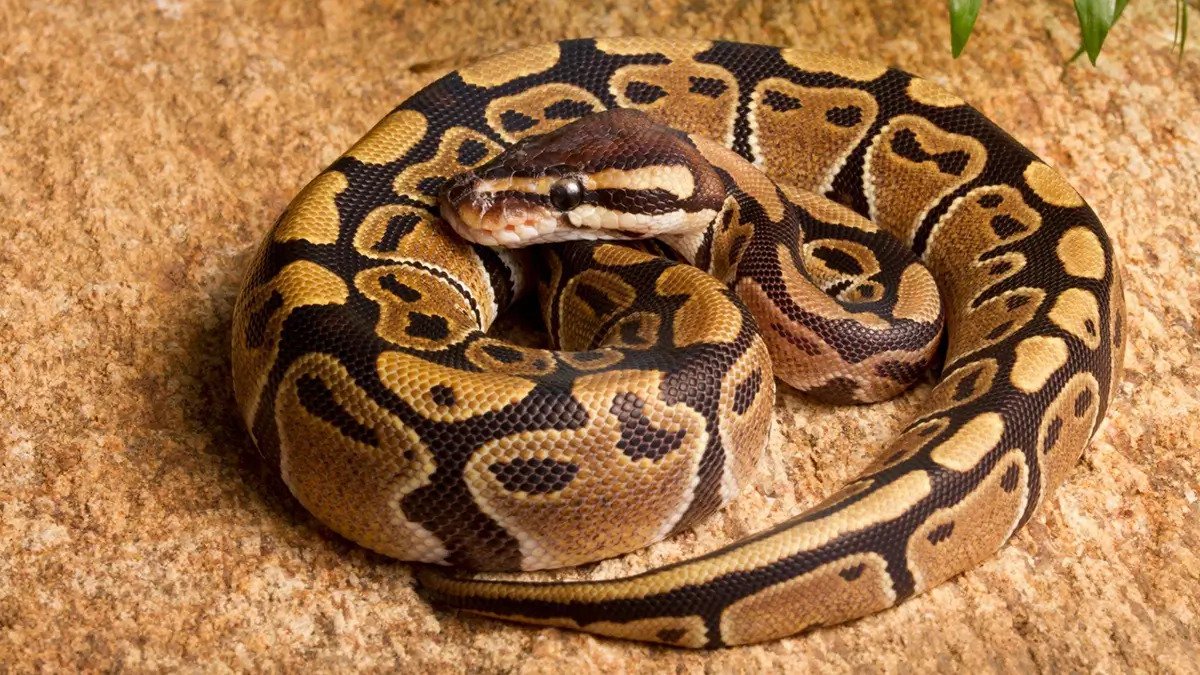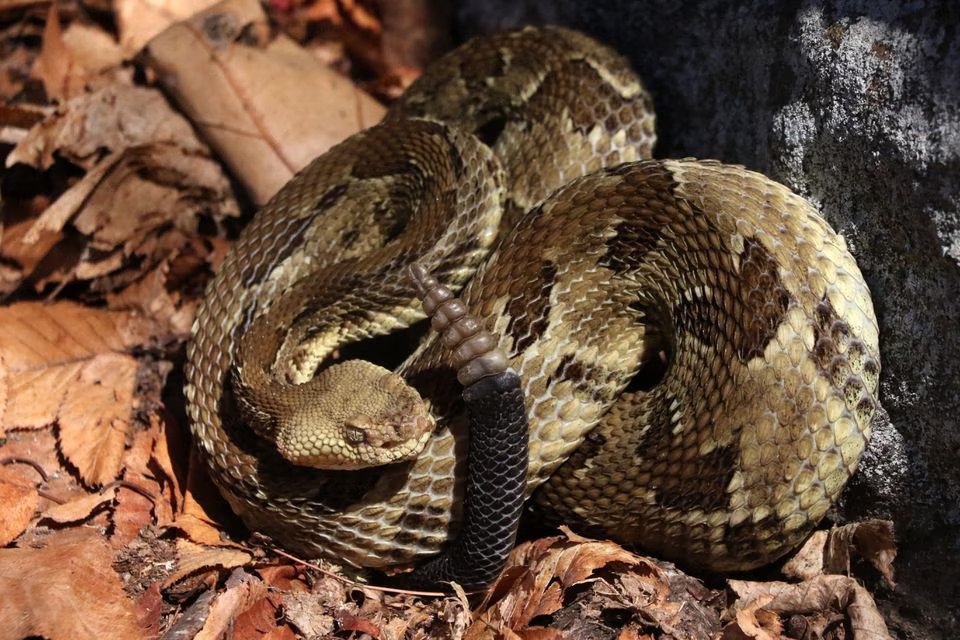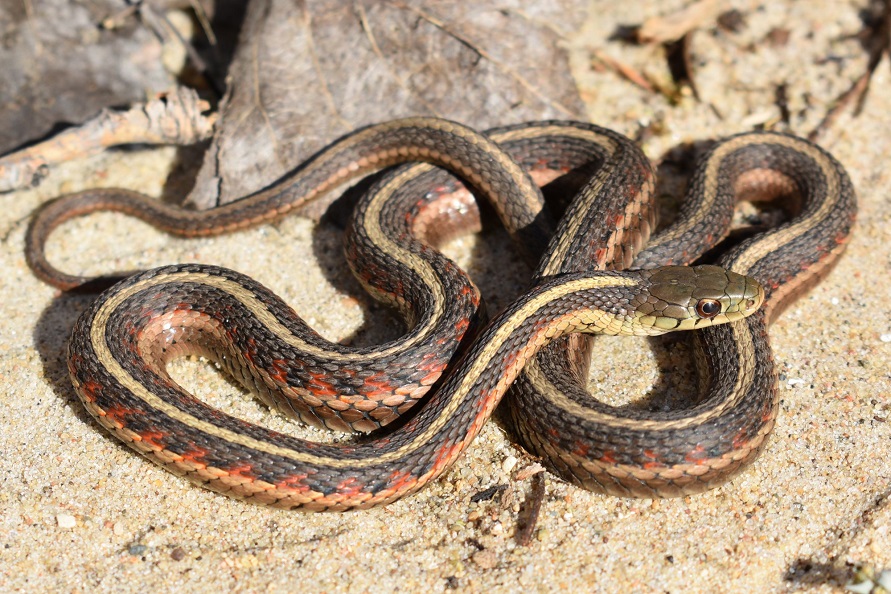Redstripe Ribbon Snake (Thamnophis proximus rubrilineatus)
Updated on
25/04/2024The redstripe ribbon snake is a subspecies of the western ribbon snake and is endemic to Texas, US. The small to medium-sized, thin, fast-moving garter snake is an excellent swimmer. They are diurnal when they forage in the spring and fall. They become nocturnal when the summer temperature becomes too high.
Scientific Classifications
- Suborder:Serpentes
- Family:Colubridae
- Genus:Thamnophis
- Species:T. proximus
- Subspecies:T. p. rubrilineatus
Conservation Status
Description
Size
The adults can grow up to 40 in (101.6 cm) in length. Most adults reach sexual maturity when they are 20-30 in (50.8-76.2 cm) in total length. The maximum recorded size of this species is 48 in (121.92 cm).
Color and Appearance
The bright red mid-dorsal stripe makes it look attractive and helps in its identification. Both the subspecific and common names can be attributed to it. The stripe can be orange, but that is less common. A pale lateral stripe is present on each side of the body along the third and fourth scale rows above the belly. It has a pair of white spots on the top of its head that may merge into a single spot. The uniformly cream-colored lips have no stripes or bars.
The background color of the body ranges from olive to dark gray to nearly black. The head is significantly wider than the neck and has large eyes with round pupils. A white vertical bar occurs in front of each eye. The extremely long tail can make up almost 30% of the body length in some individuals.
Are They Dangerous to Humans
The serpent has toxins in its saliva, and its bite can cause a mild reaction in humans but is not dangerous. On being handled, it can emit a foul-smelling musk from its cloaca. It can also shed the last few inches of its tail as a defense mechanism.
Redstripe Ribbon Snakes at a Glance
Distribution
It inhabits Edwards Plateau in West Texas.
Habitat
The semi-aquatic snake spends most of its time on the edges of permanent water bodies such as ponds, swamps, slow-moving streams, or lakes.
Lifespan
It lives for 3-6 years in the wild and 12-20 years in captivity.
Predators
Large wading birds (for example, herons), shrikes, cranes, hawks, foxes, and raccoons prey on the redstripe ribbon snake.
Diet
Amphibians, like the northern cricket frog, form its primary diet. But it also eats small rodents and lizards.
Reproduction
Viviparous (gives birth to live young)
They mate in April and May after emerging from hibernation. The young are born from late June to mid-August. A litter can be formed of 8-25 young, but the average litter size is around 15. The slender, delicate juveniles are 8-9 in (20.32-22.86 cm) in size. They resemble adults in color and pattern and can take care of themselves from the moment they are born.
Source
stevenbolgartersnakes.com, reddit.com, eol.org, flickr.com

